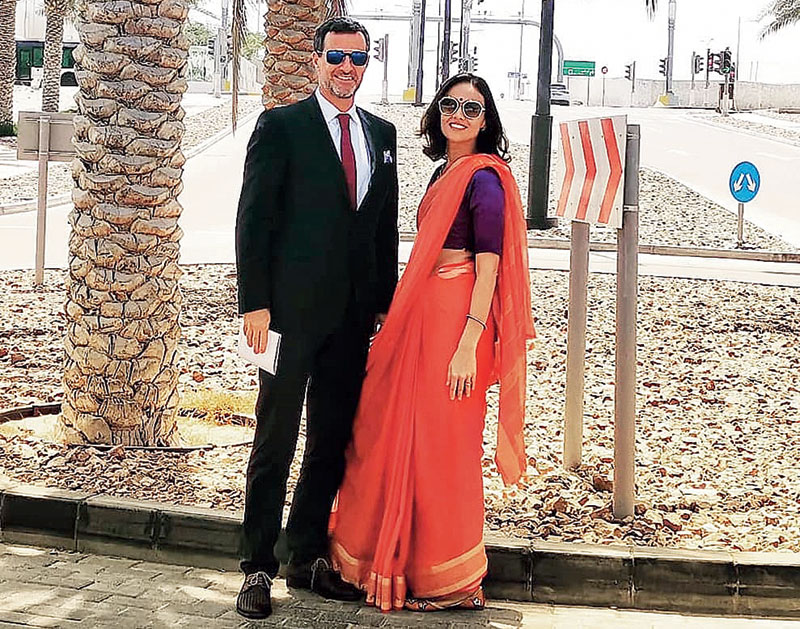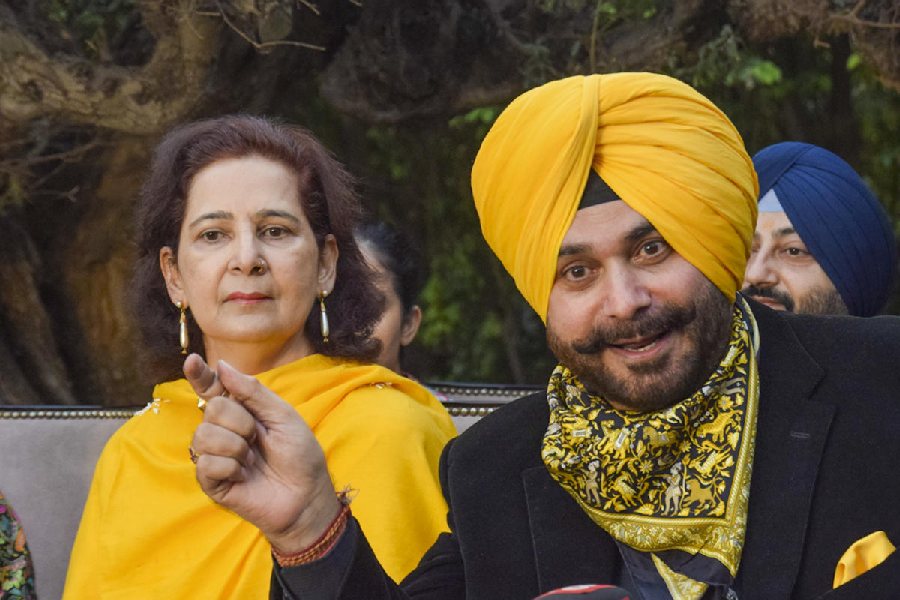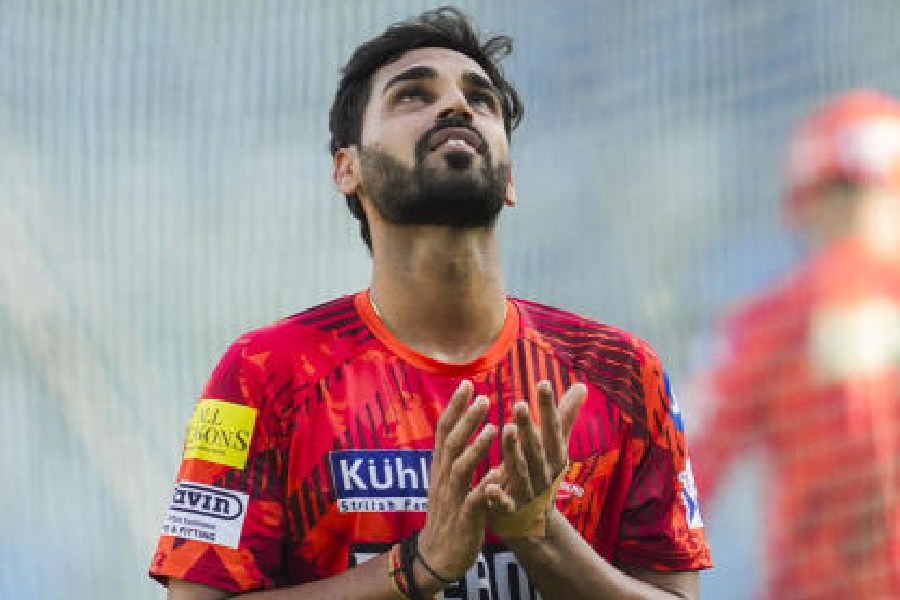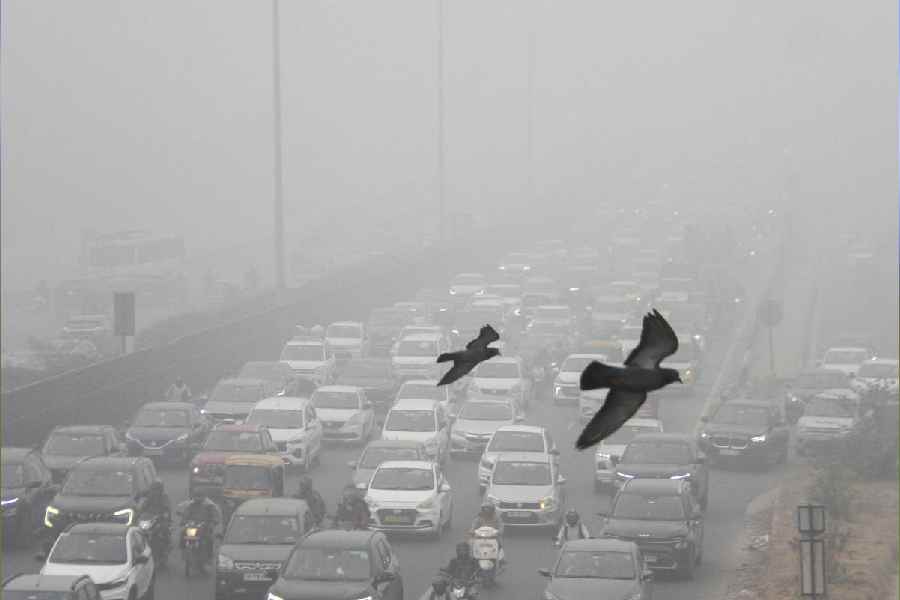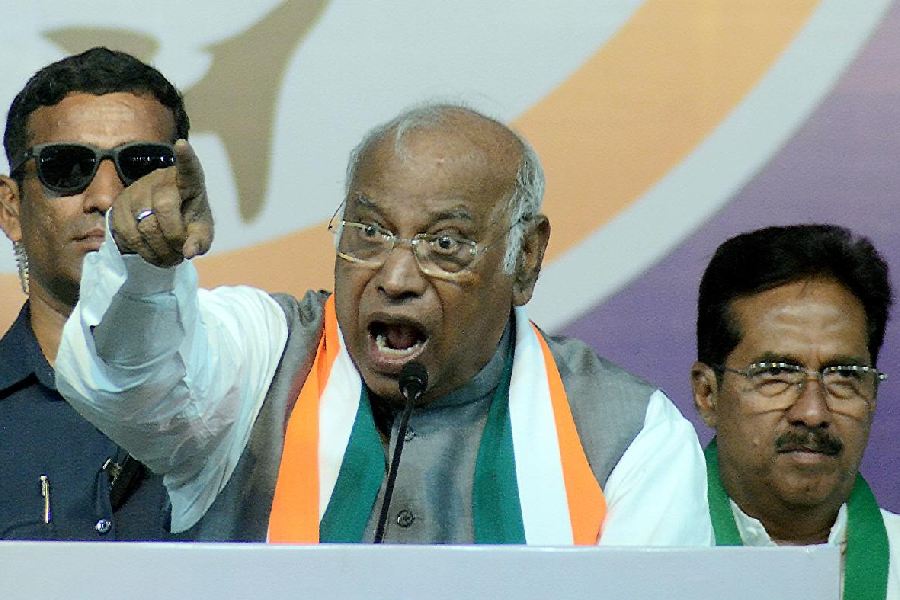Carlo Pizzati came to India many moons back and found love, only to never return. An Italian journalist turned author, his latest book Bending Over Backwards: A Journey to the End of the World to Cure a Chronic Backache is a prequel to his previous book Mappillai: An Italian Son-in-law in India. In the city for a session at the Apeejay Kolkata Literature Festival, we sat down for a quick chat with the author, beginning with our mutual love for author and dancer Tishani Doshi, who also happens to be his wife. “We work in the same house and have breakfast together so we end up discussing what we are writing, while we are at it. Often we wait until it’s presentable before sharing with each other but we do discuss ideas,” he laughs and says. Excerpts.
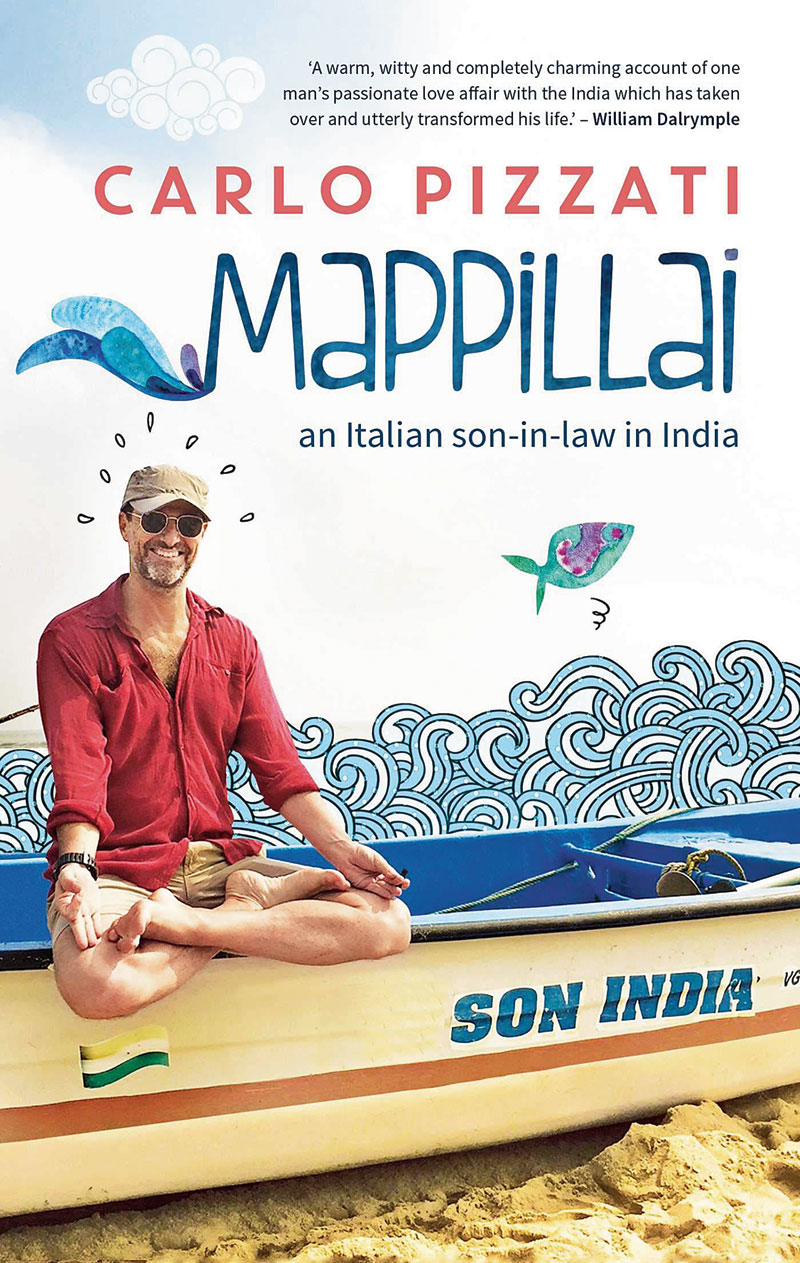
Book cover
How is writing as a journalist different from writing as a novelist?
After my last job in 2005, they gave me a very good severance pay, which allowed me to relax. When I realised I wanted to dabble with fiction, I had to wash away my journalistic style by not being a journalist for a while. Later, as luck would have it, I was asked to return to journalism and this time, I understood the value of words. So I was able to bring a different flavour to my journalistic writing.
As a journalist, with a tight deadline, you often don’t get to do that while as a writer of fiction, I could take my time to tell the story the way I want. Without the break in between, this sharp distinction would perhaps not have happened. Of course, novels written by journalists like For Whom The Bell Tolls or Hundred Years of Solitude — they are fantastic novels, so of course I am not denigrating that. But for me it was good to take a break and explore writing at my own pace with no real deadline.
As a former journalist operating out of areas of conflict, what is your take on the current situation unfolding in India?
I think every act is political even if you don’t march on streets. Although it’s important to march on the streets. I have been here long enough to see Congress and then Modi come into the seats of power. The vigilantism, Internet shutdowns do a lot of disservice to the beauty that is India. I write freely for Indian media and I must add that I have never had any repercussions.
Last year, one Sanghi troll attacked me on twitter for an article I had written with a headline that wasn’t mine. He was right actually but instead of having a conversation and observing that the headline was wrong, he immediately asked everyone to attack me, which I found very weird. A friend Paolo Sorrentino (Italian director of The Great Beauty fame) made an interesting movie called Loro (2018) and it is a commentary on the people around Berlusconi who often times acted without even the bosses knowing. More often than not, it’s not a single person to blame for a situation, it’s the climate the leader allows to be built that causes the chaos. This happens by not creating a language of peace and instead is polarising. Think of the millions of voters we have and the percentage of them who voted for BJP. It’s not like all of those people believe in all of the views of BJP, so no way can we say that it’s the majority.
People are getting jailed without trial and people are getting murdered. It’s disappointing for me because I feel like Europe was looking at India, too, through a certain contagion, to make China feel more responsible towards civil rights but now, the opposite is happening.
You have spoken about a colonial hangover persistent in India and as a foreigner, you have fallen in love with this country. Is there anyway the two are connected?
Oh you should read Mappillai! (laughs). I came for spirituality and to discover certain things and I stayed because I fell in love with my wife! Had I not had a relationship with her and then eventually married her, I don’t know if I would have stayed. This is also why I am arguing that my point of view is more Indian than certain India-loving goraas. That is why my reason for staying back is more normal. I did not stay because I was an Indophile. Through the love for my wife came this love for India. This also allows me to be a grumpy, old uncle about India! Those starry-eyed India-lovers are afraid to speak the harsh truth and most of the time they don’t even see it. I can and that gives me the right to participate in debates and make claims like “Chennai is very boring”! But I am thankful for how accepting my friends and my wife’s friends have been. It’s more than what I expected and they made me feel like I was one of them.
And which would be your favourite city in this country?
Mumbai because I feel like the city encapsulates the energy that New York or Rio de Janeiro or Naples has — three of my favourite cities. Although I feel like if I stayed there longer than a weekend, I would probably have a nervous breakdown but something about that city speaks to me when I take a walk. I feel super galvanised. Sorry Calcutta, I love you but Mumbai takes my heart!
How much of the backache is true?
All of it! The thing about writing is you should be very careful about what you write, because as it is said, it will come true. It has unfortunately come back but the lesson in this is that one needs to be determined with their self-discipline, which is something I had lost.
Most of Mappillai was written after Bending Over Backwards. I had better understanding of myself and my surroundings, I was more mature by the time I wrote Mappillai. I thought I was a fool and I might as well tell the world that! Here, I was taking myself a little more seriously!
And your favourite Indian contemporary author?
Has to be the one I live with... her name is Tishani Doshi! But there is a group from her generation that is so formidable — Janice Pariat, Jeet Thayil — and my favourite or someone I have a little more affinity towards is Manu Joseph. I think he is not understood but soon will be. He has a very original mind, not only as a novelist but also as a columnist.
Do you believe fiction comes with any form of social responsibility?
Zero! If you set out to write with this question in mind, you are bound for disaster. But in all seriousness, it is inevitable I feel. If you have a love story set in today’s time, how can it avoid what is on everyone’s mind. I have a son who is 16 years old and I love this generation because the world they were dealt with is more difficult. So they are rising to the occasion. Writers and novelists of that generation are immune to the topic of the times. You can’t decide to write a novel to justify the protests in the streets. No! Write a love story in the barricades. It’s going to come out anyway because a writer reflects upon the spirit of the time whether he likes it or not.
What are your thoughts on multiple literary festivals being celebrated around the country?
I think they are dwindling now as there is no money in the economy. Maybe there was an overgrowth, who knows, but it’s exciting to be a writer in India now. There is a growing tribe of readers and that is frankly very exciting. I am not talking about a city like Calcutta that has readers and writers aplenty but India in general. It brings you closer to reading, especially in places that are afflicted with ailments that go beyond the purview of basic literacy.

